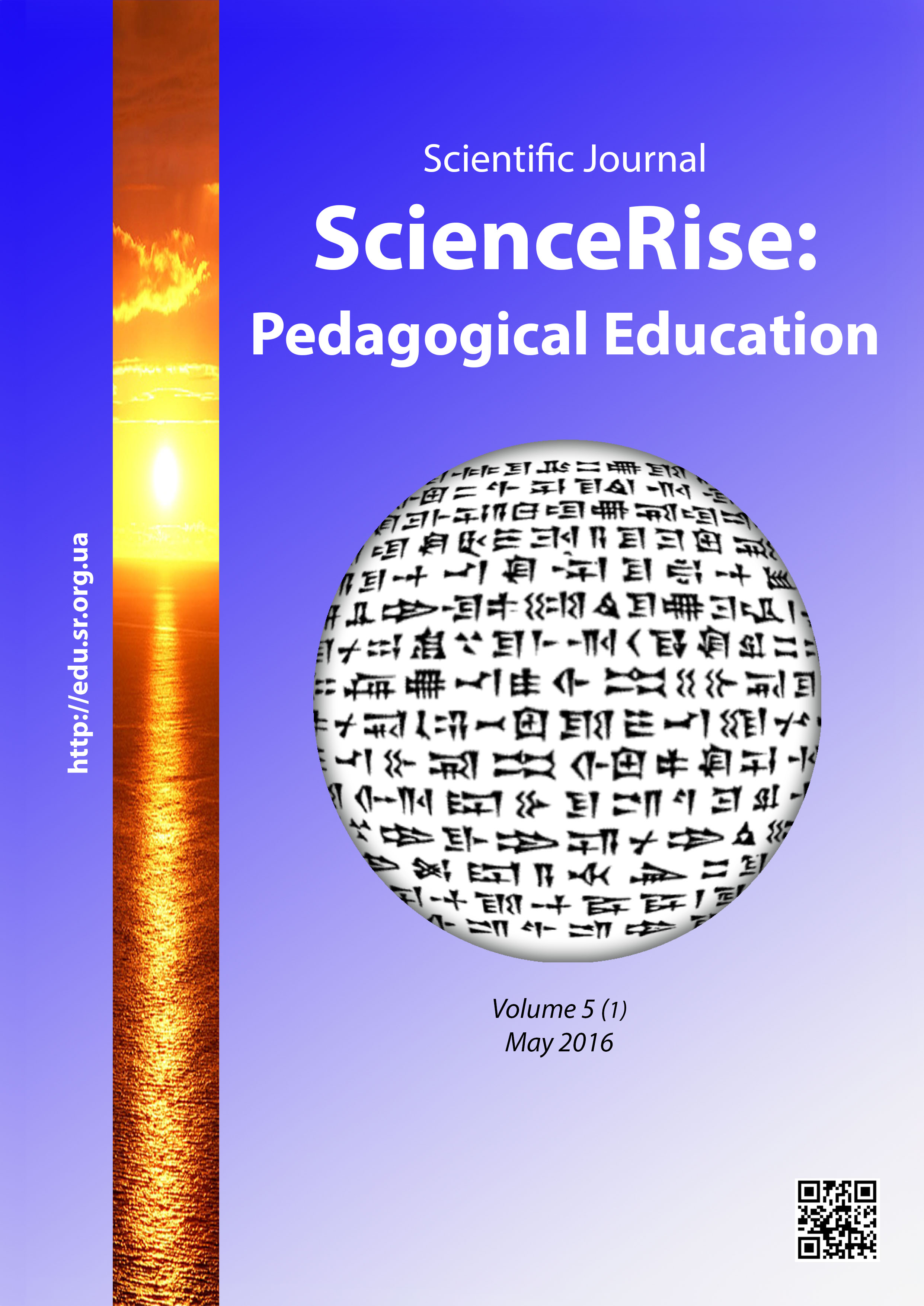Innovative methods of teaching foreign language for professional purposes
DOI:
https://doi.org/10.15587/2519-4984.2016.70212Keywords:
competence approach, innovative methods, motivation, involvement into the project, activity realization, presentation, computer technologiesAbstract
The article deals with the value and role of innovative methods of teaching foreign languages for the professional purposes. The special attention was paid to the fact that the use of the method of educational projects of professional orientation is conditioned by the new social demand – to transform the foreign language from the passive subject into the active one and also was noted, that the foreign language is necessary for the professional development and it is the inalienable condition of the Ukraine’s participation in the Bolognese process, that is why at the modern stage the basic direction in the teaching foreign languages is the use of competence approach. Author like the many others attributes the project method to the game ones, which result is generated at the collective activity and the final product is elaborated collectively and is presented publicly. In the article was noted that it is very important to teach students to think and to use the received knowledge in practice. Students with pleasure take part in the common business discussions, role games and in the different projects which types are defined according to the communicative task.
At the same time in the work author pays attention to the use of computer technologies and its effectiveness at the lessons.
Author makes the conclusion that the use of the active methods as the opposite to the traditional ones leads to the development of the communicative competence and is directed on creation of the stable motivation to the learning foreign languageReferences
- Polat, Je. S. (2000). Novi pedagogichni ta infomacijni tehnologii' v systemi osvity. Moscow: Akademija, 254.
- Krat, O. I. (2011). Komponenty systemy navchannja inozemnoi' movy profesijnogo sprjamuvannja cherez zmist profesijnoi' dijal'nosti. Visnyk Dnipropetrovs'kogo universytetu imeni Al'freda Nobelja. Serija ''Pedagogika i psyhologija'', 2 (2), 69–74.
- Panfilova, A. P. (2012). Innovacionnye pedagogicheskie tehnologii. Aktivnoe obuchenie. Moscwo: Akademija, 192.
- Bigych, O. B., Borysko, N. F., Borec'ka, G. E. et. al; Nikolajeva, S. Ju. (Ed.) (2011). Metodyka formuvannja mizhkul'turnoi' inshomovnoi' komunikatyvnoi' kompetencii': Kurs lekcij. Kyiv: Lenvit, 344.
- Pometun, O. I., Pyrozhenko, L. (2004). Suchasnyj urok. Interaktyvni tehnologii' navchannja. Kyiv: Vydavnyctvo A. S. K., 192.
- Glushok, L. M. (2010). Zastosuvannja interaktyvnyh metodiv pry vykladanni anglijs'koi' movy u Hmel'nyc'kij gumanitarno-pedagogichnij akademii'. Pedagogichnyj dyskurs, 8, 56–59.
- Red'ko, V. (2011). Interaktyvni tehnologii' navchannja inozemnoi' movy. Ridna shkola, 8-9, 28–36.
- Bordovskaja, N. V. (Ed.) (2011). Sovremennye obrazovatel'nye tehnologii. Moscow: KNORUS, 432.
- Nikolajeva, S. Ju. (Ed.) (2003). Zagal'nojevropejs'ki rekomendacii' z movnoi' osvity: vyvchennja, vykladannja, ocinjuvannja. Kyiv: Lenvit, 273.
- Cloud, N., Genesee, F., Hamayan, E. (2009). Literacy Instruction for English Language Learners. Portsmouth: Heinemann, 248.
- Crandall, J. (1992). Content-centered instruction in the United States. Annual Review of Applied Linguistics, 13, 111–126. doi: 10.1017/s0267190500002427
Downloads
Published
How to Cite
Issue
Section
License
Copyright (c) 2016 Олена Володимирівна Новосілець, Анастасія Олегівна Крилова

This work is licensed under a Creative Commons Attribution 4.0 International License.
Our journal abides by the Creative Commons CC BY copyright rights and permissions for open access journals.
Authors, who are published in this journal, agree to the following conditions:
1. The authors reserve the right to authorship of the work and pass the first publication right of this work to the journal under the terms of a Creative Commons CC BY, which allows others to freely distribute the published research with the obligatory reference to the authors of the original work and the first publication of the work in this journal.
2. The authors have the right to conclude separate supplement agreements that relate to non-exclusive work distribution in the form in which it has been published by the journal (for example, to upload the work to the online storage of the journal or publish it as part of a monograph), provided that the reference to the first publication of the work in this journal is included.








